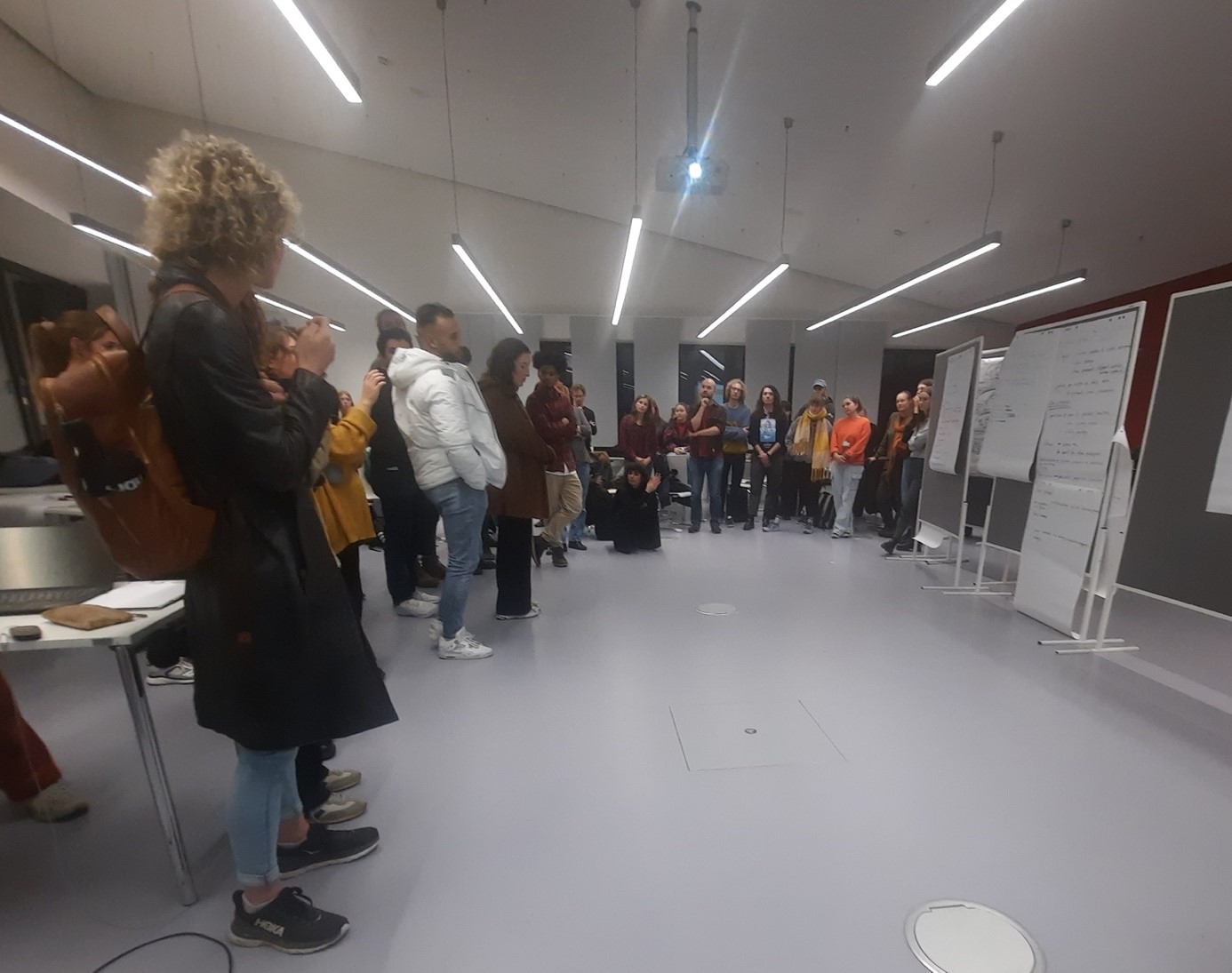
Source: Regina Rhodius, 2024
On October 28, 2024, the Institute for Technology Assessment and Systems Analysis (ITAS) at the Karlsruhe Institute of Technology (KIT) and Oeko-Institute came to Lueneburg for a day on behalf of the tdAcademy. Anyone studying the master’s program Sustainability Science at Leuphana University spends two semesters, about a year, working on a transdisciplinary (TD) research project. Around 60 students are currently working together with urban stakeholders in three different research projects – for example on the topic of municipal climate adaptation, urban/neighbourhood development or the sustainable urban transformation in a German-Polish municipality. As part of a three-and-a-half-hour workshop, the tdAcademy familiarised the students with the topics of context, formats and methods. After an introduction to TD research, the tdAcademy and its understanding of context, formats and methods, the students worked out the significance of the presented content for their work in their respective project working groups.
The Importance of Context and Formats for the students' TD Research Projects
In a first step, the thirteen working groups, each dedicated to a sub-topic, e.g. the ‘edible city’, health aspects in climate adaptation or strengthening social cohesion, discussed which contextual factors influence their research and whether these promote or hinder a TD research character. They also reflected on which formats and methods they have already used or would like to use and why this may not be possible.
In a second step, the students came together in new groups with members of other working groups and research projects and exchanged views on remarkable or surprising aspects from the previous group phase.
After the working groups came together again to relate the insights gained from the experiences of other groups back to their own project and discuss what could potentially be learnt from them, a gallery walk took place in plenary to present the results of the group work and exchange findings.
Similarities and Differences in the students' TD Experiences
Overall, despite the different research projects and cooperation partners, the students identified many similarities between their research projects in terms of context and formats. One of the main reasons for this is probably the curricular integration of the research projects. For example, the workshop participants discussed the time limit, the dependence on a practice partner and different types of knowledge as decisive contextual factors. Besides that, many groups used methods such as stakeholder mapping, interviews and participant observation. Some also mentioned the use of visual methods, the three-horizons approach or workshops.
When is TD Research really Transdisciplinary?
During the workshop, it also became clear that many of the students questioned the extent to which their research is actually transdisciplinary. This question was raised, for example, because tasks were not developed jointly, but were already set at the beginning of the research project. Finding out that various working groups and research projects struggle with this question made it easier for the students to a certain extent. Finally, the representatives of the tdAcademy also emphasized that the question of the extent to which transdisciplinary requirements are fulfilled arises again and again in TD-processes.
